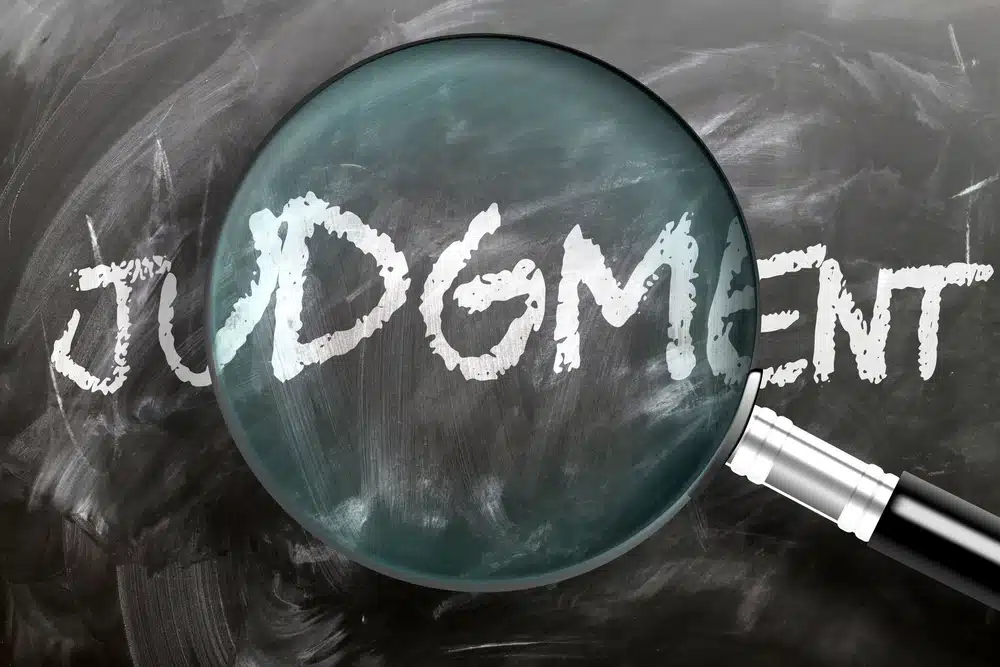
One of the most pressing concerns during such periods is managing cash flow. A steady and healthy cash flow is crucial for the seamless running of a business, ensuring that commitments to suppliers, employees, and other stakeholders are honoured.
However, when cash flow is interrupted, businesses might find it challenging to fulfil their financial obligations, potentially leading to a County Court Judgement (CCJ).
What is a CCJ?
A County Court Judgement (CCJ) is a legal order issued in the UK when an individual or business fails to repay money they owe. It’s the result of a creditor taking legal action against a debtor to reclaim the outstanding debt.
If the court determines that the debt is valid and remains unpaid, it will issue a CCJ against the debtor. This judgement is recorded on the debtor’s credit file for six years and can significantly impact their ability to secure credit or finance in the future.
It’s essential for individuals and businesses to address a CCJ promptly, either by settling the debt or challenging the judgement if they believe it to be incorrect.
Paying off a CCJ
Paying off a County Court Judgement is crucial for individuals and businesses aiming to maintain a positive financial reputation in the UK. Once a CCJ is issued, the debtor typically has 30 days to clear the outstanding amount to prevent the judgement from being recorded on their credit file.
If paid within this timeframe, the CCJ will be marked as ‘satisfied’ and will not tarnish the debtor’s credit history. However, if the payment is made after the 30-day window, the CCJ will remain on the credit file for six years, although it will be marked as ‘satisfied’ once the debt is settled.
It’s worth noting that even a ‘satisfied’ CCJ can influence lenders’ perceptions and potentially hinder future borrowing opportunities. Therefore, addressing and settling a CCJ promptly is of paramount importance
Why CCJs can be a problem
Lenders utilise your credit history when evaluating a loan request. A pivotal criterion for loan approval is your business’s credit standing. A CCJ can diminish your credit rating and will be evident in your financial records.
Upon assessing your financial profile, lenders will spot the CCJ and its associated value.
Undoubtedly, a CCJ casts a negative shadow on a business. It can signal potential financial troubles and will reduce your credit rating. Hence, during any finance application, the presence of CCJs will be scrutinised by lenders. Even suppliers might review this before deciding on offering credit terms.
Certain financial institutions might decline lending if there’s a CCJ linked to you personally or your enterprise, perceiving it as a potential repayment risk.
That said, having a CCJ doesn’t outright disqualify you from obtaining business finance or other credit avenues. However, it does complicate the process and adversely affects your individual financial appeal. Lenders primarily seek assurance of repayment.
Your funding options
The following funding types are available to businesses with adverse credit history:
Secured Financing with a CCJ
If you’re dealing with a CCJ, secured financing might be the most straightforward funding option to pursue. Offering collateral reduces the lender’s risk, enhancing your appeal. Such collateral can encompass real estate, industrial machinery, tools, or even sizable invoices from prominent clients.
Unsecured Financing with a CCJ
Obtaining unsecured financing with a CCJ can be challenging, yet it’s not out of reach. Lenders will assess the age of the CCJ and the circumstances leading to it. If the CCJ is older and your enterprise has since rebounded, your prospects for an unsecured loan improve.
However, as a company director or associate, you’ll be expected to give a personal assurance for the loan’s repayment.
Asset-Based Financing with a CCJ
Asset-Based Financing, encompassing Hire Purchase and Leasing, might be the most cost-effective method to acquire vehicles and various business tools. As the finance is anchored to the asset itself, rather than your or your company’s creditworthiness, securing Asset-Based Financing is often feasible even with a CCJ.
Invoice-Based Financing with a CCJ
Invoice-Based Financing presents a potential alternative to traditional loans, especially for businesses contending with a CCJ. Funds are fronted based on the worth of your issued invoices, enabling you to bolster your cash reserves without impacting your credit history.
How we can help
We recognise that companies might encounter CCJs due to circumstances beyond their control, possibly stemming from unexpected cash flow disruptions, like a primary client failing to make a crucial payment.
We’re here to collaborate with you in identifying solutions, and we’re acquainted with lenders who are inclined to consider applications from businesses with CCJs more compassionately.
The financiers we liaise with evaluate the entire business scenario when deliberating on financing, and a recent CCJ is merely one of several aspects they consider.
We’ll partner with you to delve into the reasons behind your CCJ and assist you in presenting your situation to potential lenders. If we can illustrate that the outstanding debt arose from unforeseen challenges rather than inherent issues within your enterprise, it’s likely we can connect you with lenders willing to understand your position and potentially grant the necessary funds.
Lee Jones is a seasoned Business Finance Specialist with over two decades of invaluable experience in the financial sector. With a keen eye for market trends and a passion for helping businesses thrive, Lee has become a trusted advisor to countless organizations seeking to navigate the complexities of finance.


